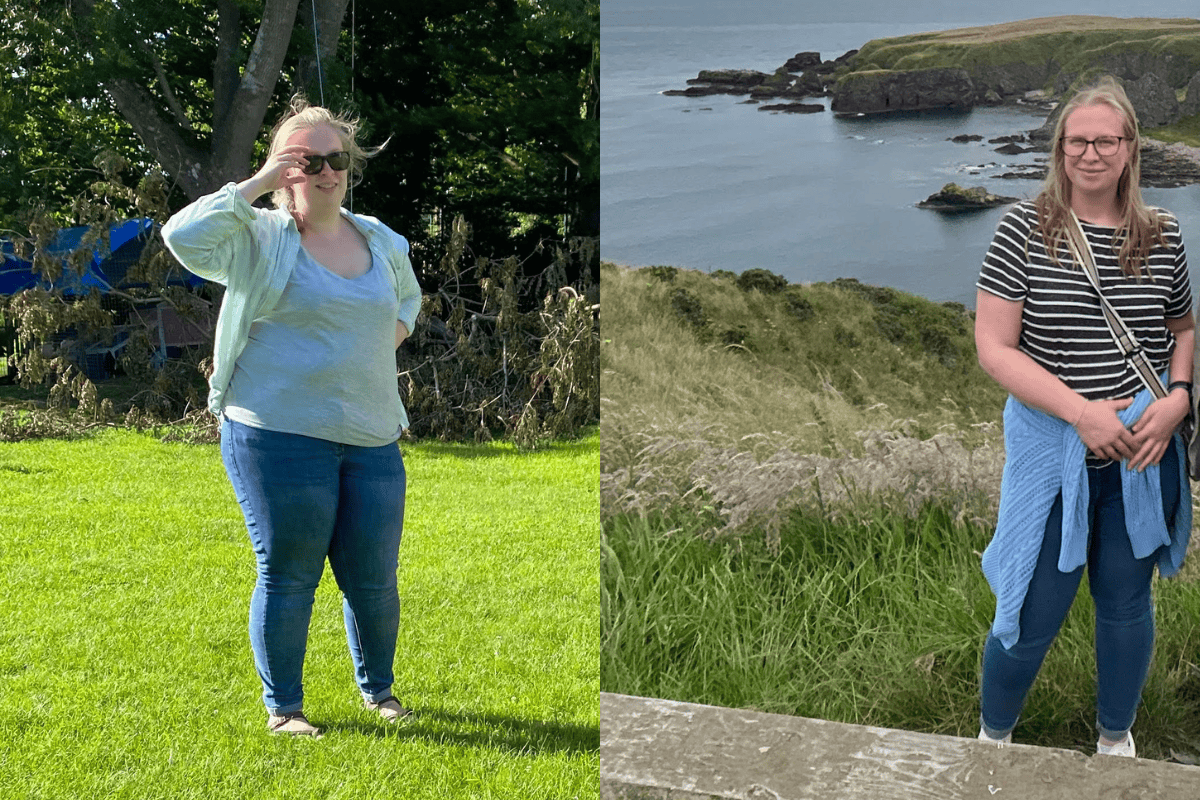Common Misconceptions About The Fast 800
Before embarking on any lifestyle change, knowledge is key. With a few myths out there about The Fast 800, we thought we’d better answer some of the most common misconceptions. Over the past couple of years, The Fast 800 has changed the lifestyles of thousands for the better and we plan on continuing to do so for many more to come.
Exercise is not important on The Fast 800
Quite the opposite, exercise plays a very important role being one of the core pillars of The Fast 800, along with mindfulness and the Mediterranean-style diet. It is true however, that exercise doesn’t burn as many calories, or fat, as you may think 1 – to burn off a single pound of fat, you would need to run for around 36 miles. In this context, diet is more effective than exercise, particularly when losing weight for your health is a priority.
However, the benefits of exercise are far beyond weight loss; exercise is a great tool for building muscle mass, improving your mental wellbeing and managing chronic conditions such as type 2 diabetes, cardiovascular disease and metabolic syndrome 2.
The Fast 800 has a team of professional fitness coaches who have designed our exercise programme to complement the lifestyle of our members. Members progress through beginner, intermediate and advanced courses, suited for all ages and abilities. To give you an idea of the exercise programme that works alongside The Fast 800, we’ve put together a 7 day downloadable exercise guide.
The Fast 800 deprives you of sweet treats and desserts
Enjoying food and eating healthy aren’t mutually exclusive, despite common belief. Yes, we encourage you to avoid refined sugar and trans fats when following any of the approaches on The Fast 800 however, this certainly doesn’t mean you’re deprived of dessert, nor enjoyment.
Our in-house nutritionist is continuously working to create delicious recipes packed with nutrient-dense, high protein, Mediterranean-style ingredients to keep you satisfied throughout the day. The Fast 800 is designed to be a long term lifestyle, not just another fad. We know the reason so many “diets” fail is because of the restriction and guilt that comes with them. If you do enjoy an odd treat, it’s completely okay! We simply encourage you to accept it, enjoy it and continue your meal plan the following day. However, with the abundance of Mediterranean-style, delicious food you can enjoy with this way of eating (including eggs, cheese and full fat dairy products), it’s quite rare that you’ll crave anything too sweet as your taste buds will adapt over time. However you do fancy something sweet from time to time, we have some very healthy, yet very indulgent, options!
Rapid weight loss is bad for you
Founded and developed by a group of qualified doctors and health professionals, our whole philosophy is based upon scientific evidence. The reason we recommend a rapid weight loss diet, for those who are suitable, is because of a number of large studies showing that when they are done properly, they are safe and far more effective than the standard “slow and steady” weight loss advice. These studies also show what can happen if you ignore the problems of obesity and just continue to follow usual advice. The following are just a few of the more recent studies.
The DiRECT study (2019)³, is a major ongoing trial that has demonstrated the power of a brief, rapid weight loss diet to reverse type 2 diabetes and achieve significant weight loss. For this study, 298 overweight patients with type 2 diabetes were randomly allocated to around 840 calories a day for 12 to 20 weeks or to a control group who got best practice care.
At the end of two years, those allocated to the rapid weight loss diet had lost and kept off 7.6 kg (17lbs) and 36% had normal blood sugars despite being off all medication. There were far fewer serious long term complications in those who had done the rapid weight loss diet than those getting usual care. In the usual care group, there were was a death, two strokes, an amputation and five cases of cancer related to obesity. The main negative side effects of rapid weight loss were headaches and constipation, which are best prevented by drinking plenty of water.
In another large study, The DROPLET Trial4, carried out by researchers from Oxford University, 278 overweight or obese patients were randomly allocated to either 810 calories for 3 months or standard care. Those in the rapid weight loss group lost and kept off 10.7kg seeing big reductions in their risk markers for heart disease and metabolic disease. There were similar numbers of mild side effects in both groups.
Diabetes is currently costing the NHS an estimated £14 billion pounds per year.5 Currently, 90 percent of those suffering with diabetes are diagnosed with type 2. Type 2 diabetes is something that these studies, as well as The Preview Study (2018)6, have evidenced can be placed into remission with rapid weight loss and lifestyle changes. These studies produced such impressive results that in September 2020, the British NHS began rolling a rapid weight loss programme in over 5000 patients with type 2 diabetes. Learn more about the NHS programme here.
Many rapid weight loss studies are based on using meal replacement shakes. One of our founders, Dr Clare Bailey, carried out a study with Oxford University which was based on The Fast 800 low calorie, low carb, real food approach. This study, called Diamond, was recently published in the British Medical Journal.7
Patients with type 2 diabetes were randomly allocated to ‘usual care’ or to eating 800-1000 calories in the form of low carb meals every day for eight weeks. Patients on the rapid weight loss diet lost an average of 9.5 kg and saw a big drop in their blood sugar levels, even though they had stopped some of their diabetes medication. This drop was larger than most medications achieve. The patients (and their doctors) were very enthusiastic about this approach and were highly motivated by seeing such quick results. The patients also reported that rapid weight loss had had a positive impacts on their emotional and psychological well‐being. There were no unexpected or serious effects.
The Fast 800 approach was also used by Dr Michael Mosley and Dr Clare Bailey in their recent Channel 4 television series, “Lose a Stone in 21 Days”, where 5 overweight or obese volunteers went on a rapid weight loss diet for 21 days and lost an average of nearly 7kgs. When Dr Mosley caught up with the volunteers for an updated programme, “How To Keep A Healthy Weight With Michael Mosley”, seven months after they had first met, he discovered they had not only kept off the weight but most had lost more.
Although there has been fears expressed in the media, and online, that going on a rapid weight loss diet could trigger an eating disorder, there is no evidence from recent trials that this is the case. Eating disorders are extremely complex and distressing. For more information visit this page.
Rapid weight loss is not suitable for everyone and on The Fast 800, we recommend you only do it if you are significantly overweight, or obese, and only for up to 12 weeks. However, The Fast 800 online programme is not just for those with an unhealthy BMI. Our other, more flexible approaches, are suitable for those looking to improve their overall health.
If you are considering The Fast 800, we recommend consulting your usual healthcare professional before making any significant changes to your diet or exercise regime.
If I eat only 800 calories, I’ll be hungry all day
When beginning their weight loss journey, so many are surprised with how much 800 calories actually looks like when you’re filling yourself with nutritious, whole foods. In opposition to so many diets that are out there, and straying away from the common belief that arose throughout the 70s that full-fat products are bad for us, we encourage members to add plenty of olive oil and full fat dairy to their day, like Greek yogurt and cheese.
Low fat products promoted by popular, and quite frankly unsustainable, diet organisations are stripped of their nutrients and often ladened with additives and sugar. This is to compensate for the flavour that gets removed in the process of making them fat free. For years, people have feared fat, we embrace it. Eating healthy fats, rich in mono and polyunsaturates will not only satisfy your taste buds but curb your appetite too as they slow the rate in which the stomach empties, delaying its cue to signal for more food 8 9 .
Our nutrient-dense meal plans also pack a great amount of quality protein, crucial for growth and repair. Protein helps maintain muscle mass along with providing you protection against development of a number of health conditions, such as fatty liver disease – a condition that can lead to liver failure. The meal plans (both vegetarian and non-vegetarian) have at least 50-60g of good quality protein per day. Alongside this, we encourage our members to add non-starchy vegetables to their meals in plenty, without counting the calories, for a high nutrient intake.
The Mediterranean-style diet has been recognised time and time again to be one of the healthiest in the world. It just so happens to be rich in oily fish, nuts, olive oil and full fat dairy products (as do The Fast 800 meal plans!)
You cannot have snacks on The Fast 800 because they’re too high in calories
What many people don’t realise is that snacking can actually make you feel hungrier, which is the complete opposite of its intention. There’s a reason why we struggle to eat just one biscuit, or only handful of crisps, and major food manufacturers are well aware of it.
When you snack, particularly on the highly processed options that are quite common supermarket grabs, your body breaks carbohydrates down into glucose (blood sugars). When this happens, your pancreas releases insulin to use glucose as energy and bring sugar levels back down. Your energy cells only take the amount of glucose they need and any excess is stored in your fat cells.
If you are not using energy effectively, and frequently topping up with snacks, your pancreas releases more insulin to try and bring down your regularly peaking blood sugars. Over time, insulin receptors will become resistant meaning less glucose is transferred to energy cells and your blood sugar levels remain high – this is often the starting point of type 2 diabetes.10
As less fuel becomes available to keep your body going, tiredness will kick in and hunger levels will increase as your brain tells you that more energy is needed. Despite the intention, snacking actually makes you hungrier and breaking out of this cycle is the key to stopping.
The Mediterranean-style diet, and the quality protein and healthy fats that form it, will ensure you are satisfied throughout the day. If you do find that you need an energy boost, a handful of nuts is recommended, as a healthy fat, to avoid any unnecessary blood sugar spikes.
You can only eat 800 calories a day on The Fast 800
The Fast 800 is made up of three approaches; The Very Fast 800, The New 5:2 and The Way of Life. While following The Very Fast 800, otherwise known as the rapid weight loss approach, you consume 800 calories of nutritious, Mediterranean-style whole foods each day.
The rapid weight loss approach is not suitable for all and neither is it recommended. It’s a fantastic tool for those that are obese or overweight to decrease their weight quickly, and keep it off. The online programme has nutritionally developed meal plans, to ensure you are consuming a healthy amount of nutrients, and taking the stress of any calculating away from you. We pay specific attention to protein and fibre on The Fast 800, with an emphasis on full fat dairy products to ensure you feel full and nourished throughout the day.
The diet was created off the back of extensive research and a range of studies recognising the impact of a low calorie diet to place type 2 diabetes into remission. We recommend that people follow the approach until they achieve a healthy BMI, or for up to 12 weeks, whichever comes first before transitioning to one of our other, more flexible and higher in calories, approaches: The New 5:2 and The Way of Life.
It’s all about the scales
For some, the scales are a great motivator for progress however, others find it demotivating as they see the scales move up and down. Weight loss isn’t always linear and can be influenced by a number of factors including hormones, water weight and muscle mass. A good indicator of your progress is how your clothes fit as well as non-measurable factors like your energy levels, quality of sleep and reduced cravings for sugar.
The Fast 800 was formed on the basis of extensive research around low calorie diets. As science continues to grow and develop, so will the principles of The Fast 800. Our aim is to better the long-term health of our members through the Mediterranean-style diet and education. While a low calorie diet is not for everyone, nor do we claim it to be, a Mediterranean-style diet can be and we will continue to promote it and better the health of our global community for good.
Cox CE. Role of Physical Activity for Weight Loss and Weight Maintenance. Diabetes Spectr. 2017;30(3):157-160.
Roberts CK, Hevener AL, Barnard RJ. Metabolic syndrome and insulin resistance: underlying causes and modification by exercise training. Compr Physiol. 2013;3(1):1-58.
Lean, M., Leslie, W., Barnes, A., et al. (2018). Primary care-led weight management for the remission of type 2 diabetes (DiRECT): an open-label, cluster-randomised trial. Lancet, 391(10120), pp. 541-551. https://www.thelancet.com/journals/lancet/article/PIIS0140-6736(17)33102-1/fulltext
Doctor Referral of Overweight People to Low Energy total diet replacement Treatment (DROPLET): pragmatic randomised controlled trial doi:10.1136/bmj.k3760
Diabetes UK, The Cost of Diabetes Report, https://www.diabetes.org.uk/resources-s3/2017-11/diabetes%20uk%20cost%20of%20diabetes%20report.pdf
Type 2 Diabetes Treatment Cost https://www.england.nhs.uk/diabetes/diabetes-prevention/
Christensen, P, Meinert Larsen, T, et al. (2018), ‘Men and women respond differently to rapid weight loss: Metabolic outcomes of a multi-centre intervention study after a low‐energy diet in 2500 overweight, individuals with pre-diabetes (PREVIEW)’ Diabetes Obes Metab. 2018; 20: 2840– 2851. doi.org/10.1111/dom.13466.
Diana Gentilcore, Reawika Chaikomin, Karen L. Jones, Antonietta Russo, Christine Feinle-Bisset, Judith M. Wishart, Christopher K. Rayner, Michael Horowitz, Effects of Fat on Gastric Emptying of and the Glycemic, Insulin, and Incretin Responses to a Carbohydrate Meal in Type 2 Diabetes, The Journal of Clinical Endocrinology & Metabolism, Volume 91, Issue 6, 1 June 2006, Pages 2062–2067, https://doi.org/10.1210/jc.2005-2644
Tremblay A, Doyon C, Sanchez M. Impact of yogurt on appetite control, energy balance, and body composition. Nutr Rev. 2015 Aug;73 Suppl 1:23-7.
Wilcox G. Insulin and insulin resistance. Clin Biochem Rev. 2005;26(2):19-39.
Notable Studies
- The DiRECT Trial (year 2 results)
- The DROPLET Trial
- The Preview Study
- The Diamond Trial












